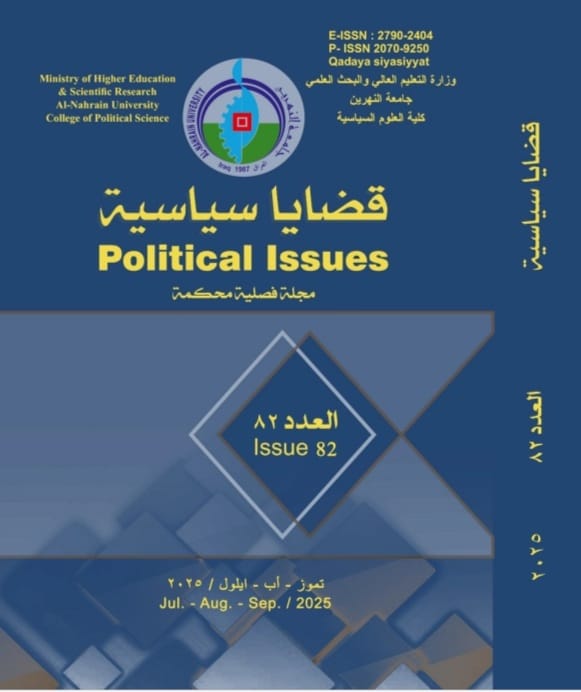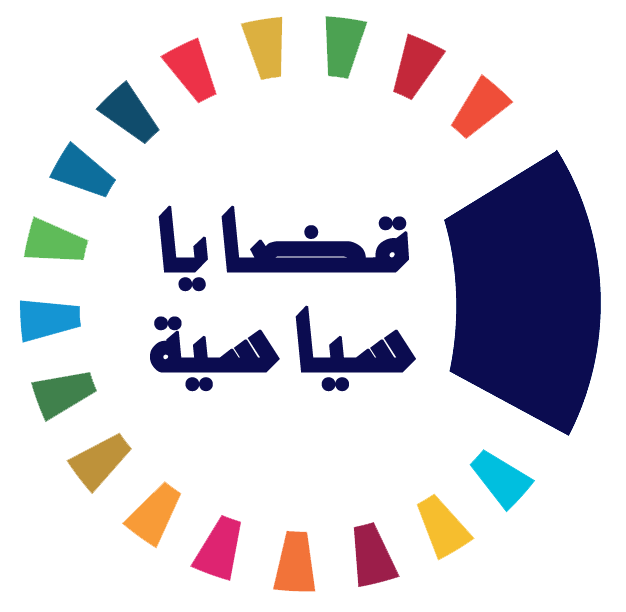دور مراكز الابحاث في توجيه السياسة الخارجية اليابانية: مراجعة نقدية في الادبيات السياسية
DOI:
https://doi.org/10.58298/822025748الكلمات المفتاحية:
مراكز الابحاث، السياسة الخارجية اليابانية، النخبة السياسية، دوائر صنع القرار، الشبكات غير الرسميةالملخص
تتناول هذه الدراسة مراجعة نقدية للادبيات السياسية التي تعالج دور مراكز الابحاث اليابانية في توجيه وصنع السياسة الخارجية، إذ تظهر المراجعة ان هذه المراكز رغم نمو عددها وتنوعها بعد الحرب العالمية الثانية لا تزال تعمل ضمن بيئة سياسية تتسم بالهيمنة البيرواقراطية والتقاليد التوافقية وتكشف الادبيات عن محدودية استقلالية هذه المراكز وارتباطها الوثيق بالنخبة الحاكمة لا سيما عبر شبكات غير رسمية تعرف بـــ الدوائر المغلقة لصنع السياسات كما تؤكد المراجعة ان تأثير هذه المراكز غالباً ما يكون غير مباشر ووظيفي إذ تعمل بوصفها مزود للمعلومات والتحليلات اكثر من كونها فاعلاً مؤثراً في تغيير التوجهات الاستراتيجية للدولة وتدعو الدراسة الى اعادة النظر في الاطر النظرية الغربية المستخدمة لتحليل هذه الظاهرة عبر تبني مناهج تأخذ بالاعتبار الخصوصية المؤسسية والثقافية للنموذج الياباني
المراجع
Stephen Boucher, Think Tanks: "Brains War of Ideas", translated by Majid Kanj, revised and edited by Fares Ghosoub, Lebanon, Dar Al-Farabi, 2009.
Imad Rzik Omar, Administrative Bureaucracy and Mechanisms of Political Management in Japan, Doha, Al Jazeera Center for Studies, 2020.
James G. McGann, 2019 Global Go to Think Tank Index Report, University of Pennsylvania, Think tank and Civil Societies Program (TTCSP), 2020.
Köllner, Zhu, and Abb, Understanding the Development of Think Tanks in Mainland China, Taiwan, and Japan, UK, PSA Conference Paper, 2018.
Kunihiko MIYAKE, why think tanks matter in Japan, Japan, The Canon Institute for Global Studies, 2020.
Marina Lomaeva & Juha Saunavaara, Japan’s South China Sea Policy and Regional Subcomplex Expansion: Toward Free and Open Indo Pacific, USA, Journal of International Political Culture & Society, 2022.
Mika Shimizu, Fourteen - Think tanks and policy analysis: meeting the challenges of think tanks in Japan, Cambridge University Press, 2022.
Pascal Abb & Patrick Koellner, Foreign policy think tanks in China and Japan: characteristics, current profile, and the case of collective self-defense, International Journal, Germany, GIGA German Institute of Global and Area Studies, Institute of Asian Studies, Vol.70, No.4, 2015.
Pascal Abb & Patrick Köllner, Foreign Policy Think Tanks in China and Japan: Characteristics, Current Profile, and the Case of Collective Self-Defense, Canada, International Journal Canada s Journal of Global Policy Analysis, 2015.
Patrick Köllner, Think Tanks: Their Development, Global Diversity and Roles in International Affairs, Germany, GIGA “German institute of Global and Area Studies, No.6, 2011.
Peter Hayes, Think Tanks, ‘Think Nets’ and Their Evolution in Asia, South Korea, East Asia Institute, Vol.10, No.1, 2015.
Tadashi Shimamoto, Nomura Research institute is creating a new future, Japan, 2015.
Toshihiro Nakamura, A Declining Technocratic Regime Bureaucracy, Political Parties and Interest Groups in Japan, 1950-2000, Denmark, United Nations Research Institute for Social Development, 2002.
Tsuneo Watanabe, Japan’s Security Policy Evolution: The Interaction between Think Tank Proposals and Government Implementation, Washington, D.C, National Bureau of Asian Research, Vol.17, No.3, 2022.
The Japan institute of international affairs, https://www.jiia.or.jp/en/abus/ .
The Tokyo Foundation, https://www.tokyofoundation.org/about/?utm_source
الملفات الإضافية
منشور
إصدار
القسم
الرخصة
الحقوق الفكرية (c) 2025 علي غسان سامي

هذا العمل مرخص بموجب Creative Commons Attribution 4.0 International License.
هذه هي مقالـــــة منشـــــــــورة بنمط الوصـــــول الحـــــــر ومـــــــوزعة تحــــــت شــــــروط ترخيص المشاع الابداعي نسب المصنف (CC BY) 4.0 دولي التي تسمح بالاستخدام غير المقيد، التوزيع، واعادة الانتاج في أي وسيط أو صيغة، والتحوير أو البناء على المادة، بما في ذلك للأغراض التجارية، شريطة أن يتم نسب العمل للمؤلف الأصلي.






